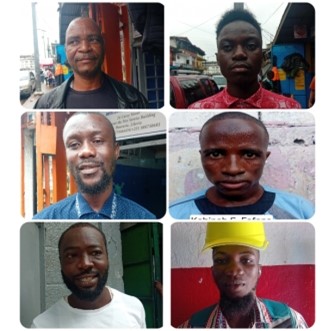The streets of Monrovia witnessed a surge of concerned citizens, predominantly women and mothers, marching against the pervasive issue of illicit drug use in Liberia. This demonstration aimed to compel the government to address the escalating drug crisis that is devastating the lives of countless Liberian youths. While the march garnered support from many, it also sparked a debate about the efficacy of such actions and the government’s commitment to combating the drug epidemic.
Public opinion on the government’s response to the drug crisis is divided. Some citizens, like S.N. Dargbe, express skepticism about the effectiveness of protests, arguing that the issue is deeply rooted in societal problems such as juvenile delinquency and requires a more comprehensive approach. Dargbe highlights the need to address underlying issues like child development challenges and mental health struggles, emphasizing that drug use can often be a coping mechanism for depression or emotional distress. He calls for expert intervention and a more nuanced understanding of the problem, rather than simply condemning drug use outright. He also points to the need to address alcohol abuse alongside illicit drugs, questioning the focus solely on illegal substances.
Others, like Gabriel B. Slobert, wholeheartedly welcome the march as a crucial step in raising awareness and demonstrating public concern for the youth affected by drug abuse. He commends the government’s endorsement of the protest as a sign of their commitment to tackling the issue. This perspective views public demonstrations as essential for galvanizing action and holding the government accountable.
A contrasting viewpoint emerges from those who question the necessity of protests when drug laws already exist. Robert P. Zlatan, for example, criticizes the government’s failure to implement and enforce these laws effectively. He questions the sincerity of endorsing marches while simultaneously neglecting the strengthening of security forces like the Liberia Drug Enforcement Agency and failing to utilize existing rehabilitation centers. This perspective underscores the importance of action over symbolism, prioritizing the practical application of existing legal frameworks.
Despite the differing opinions on the effectiveness of the protest, there is a common thread of concern about the implementation of drug laws. Moses Andrew, while applauding the government’s support for the march, highlights the persistent challenge of weak enforcement. He points to the cycle of arrests and swift releases of drug dealers, undermining any real progress in combating the drug trade. This sentiment echoes the calls for tangible action and consequences for those involved in the drug trade.
Further concerns arise regarding the government’s role in the drug crisis. Rufuson P.C. Diggs, III, emphasizes the need for transparency and accountability, alleging the involvement of some government officials in the drug trade. He expresses skepticism about the government’s commitment to fighting drugs when some within its ranks are potentially contributing to the problem. This perspective raises critical questions about the integrity of the anti-drug efforts and the need for thorough investigations into potential corruption. Diggs argues that citizens should lead the fight against drugs, as it is counterproductive to rely on those who may be complicit in the problem.
Kabineh S. Fofana, echoing the sentiments of many, acknowledges the importance of raising awareness through rallies but stresses that effective implementation of drug laws remains paramount. This viewpoint encapsulates the core concern that without proper enforcement, the fight against drug abuse will be a protracted and ultimately unsuccessful endeavor.
The call for action transcends individual opinions and resonates at the highest levels of government. Liberian Senate President Pro-Tempore, Nyonblee Karnga-Lawrence, has publicly lauded national efforts to combat drug abuse and pledged support for awareness campaigns, rehabilitation programs, and reintegration initiatives. This underscores the seriousness of the issue and the recognition of the need for a multifaceted, comprehensive approach. Senator Karnga-Lawrence’s commitment mirrors President Joseph Boakai’s declaration of the drug crisis as a national health emergency, emphasizing the urgent need for collaborative action to address this pervasive societal challenge. The convergence of public concern and high-level political acknowledgment signifies the potential for meaningful change. However, the true test will lie in translating these commitments into concrete actions that effectively curb drug abuse, dismantle drug trafficking networks, and provide support for those struggling with addiction.














